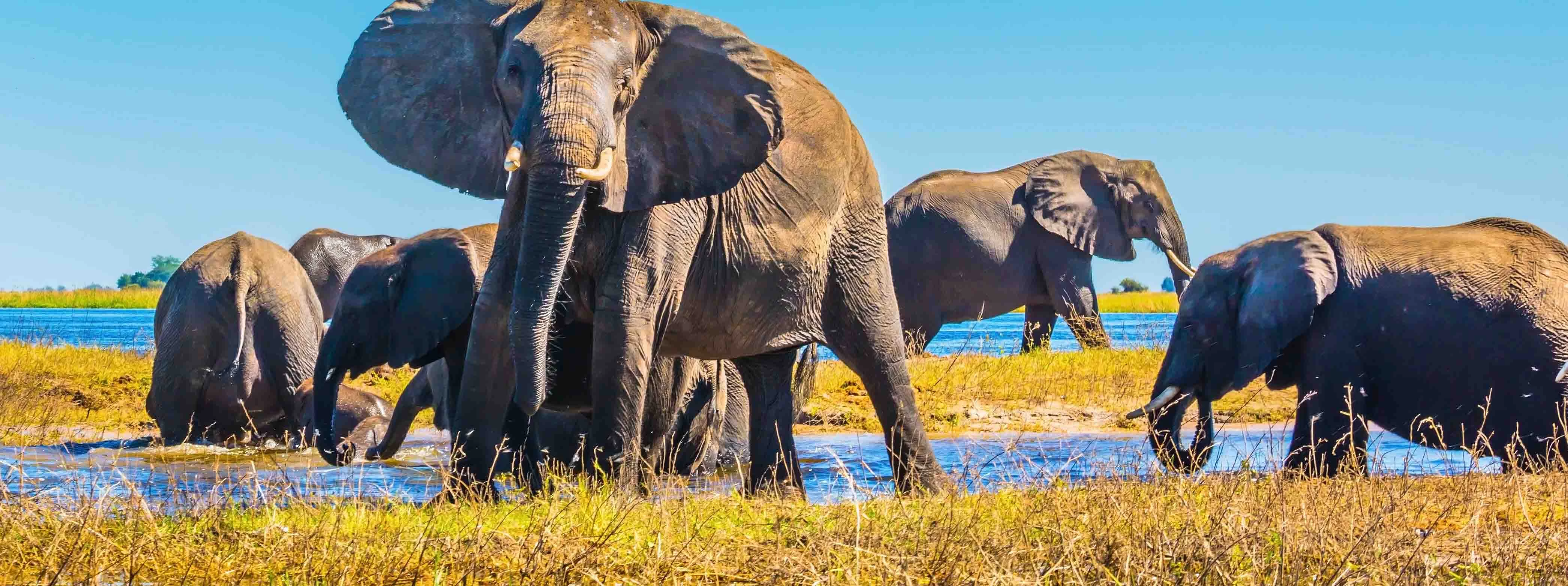


Botswana, the landlocked country in southern Africa, delights its guests with breathtaking sceneries, rich wildlife, and friendly people. Africa vacations into Botswana open up unexplored vast open deserts like the Kalahari as well as weighing up to one of the largest inland deltas in the world the Okavango, making it the ultimate travel destination for any botanist or adventure enthusiast. However, an economy that is beginning to blossom further metamorphoses into an economic beacon within the region in terms of democracy, tourism, and environmental conservation.
Botswana has a rich and varied cultural history influenced by numerous ethnic groups, the most populous of which are the Tswana. Botswana tourism attractions offer a chance to experience its traditional music, dance, and arts, which are all part of the culture for which it is known and serves to glimpse an individual into the rich history and contemporaneity of the country. Cultural events such as the annual Dithubaruba Festival are organized to showcase this heritage in attractions and potential tourists coming to enjoy performances, storytelling, and Botswana-inspired cuisines.
Just part of this diversity is reflected in the many communities that comprise the country. The best time to visit Botswana allows travelers to experience the broad mix of urban and rural lifestyles that thrive year-round. Botswana attaches tremendous importance to preserving its native languages such as Setswana and healing practices. Additionally, beadworking, valuable pottery, and weaving are produced, both for local and international markets.
Botswana has had its tourism gradually flourishing for the past few decades on the back of magnificent scenery, popular wildlife, and ecotourism. One important tourist attraction in Botswana relates to diversity-from luxury safaris to cultural experiences in traditional villages. Naturally, the Okavango Delta is the leading crown jewel in Botswana tourism, a site under the World Heritage Site designation by UNESCO, attracting visitors for its special wetland ecosystem and wildlife.
Botswana is all about promoting responsible tourism by helping people travel with low-impact and high-value experiences. Such travel for international trips would guard the environment and become part of the economic journey into the local communities. Sustainable tourism has been one of the major catalysts of incoming tourists into this southern African nation, which ranks among the very few in Africa today.
Botswana is known for some of the most exciting wildlife experiences in Africa. Each of its national parks-the much-visited Okavango Delta and Chobe National Park houses some of the highest accumulations of Africa's elephants, lions, and other icons of its great game reserves. They draw in hordes of nature lovers from all over the world. Apart from viewing wildlife, adventure activities in Botswana such as walking safaris and mokoro rides are enjoyable ways to experience these wonderful landscapes. Among the best safari experiences, these parks allow you to view animals in their natural environment up close and personal.
Thanks to Botswana's commitment to wildlife conservation, its natural treasures have been preserved. Botswana has instituted some of the most stringent policies to protect the wildlife populations from being endangered through poaching and mass tourism. From NGOs to governmental conservation bodies, Botswana has worked tirelessly to protect its ecosystems; therefore, it truly can be called a front-runner in sustainable tourism and wildlife management.
The culture of Botswana is very much reflected in its cuisine, which comprises both traditional and modern dishes inspired by the country's extensive agricultural heritage and diverse cultures. Many of the tourist packages to Botswana offer a taste of delicious local food when many staple foods are so commonly consumed such as maize meal (bogobe) and sorghum porridge with stews of beef, chicken, or goat; Botswana is also known to have a special way of cooking meats: slow-cooked over the fire for many flavors.
In the more metropolitan areas, one is likely to find restaurants that serve fusion-style cuisine between international and Botswana traditional fare. One thing about the food culture in Botswana is that it is a quite communal sharing of the meal which makes food part of social gatherings and family celebrations. It visits the local cuisine, which is another layer of experience in the country in a person's culture.
It is very important not only in the South African region but also in terms of the political economy. Botswana is a contributing member of SADC initiatives, for example, in framing regional initiatives that will largely be aimed at fostering economic integration, peace, and stability. Botswana indeed enjoys peaceful borders and non-interventionist foreign policy, dovetailed with the rest as a stabilizing force in establishing a wider Southern Africa community.
But again it is not only political but Botswana indeed has contributed in many ways to the promotion of trade and commerce in the region. The open policy of Botswana towards international business and trade thus makes it a good partner in Southern Africa, hence Botswana is an important player in Africa when it comes to the economy.
Botswana is that country, rich in contrast curvilinear adjustment, from modernity to infusion-rich traditionalism, and vast spaces to urban spaces. Isolated by the splendor of its unrivaled wildlife and landscapes, Botswana also offers unique things to do in Botswana, where sustainable development and cultural heritage intertwine. With a stable democracy and growing economy, it's become a destination in which visitors can experience the best of both worlds. Botswana will continue to be one of the outstanding destinations for a traveler and a big booster in Africa's growth and well-being.

Copyright © 2024 Tutti i diritti riservati
